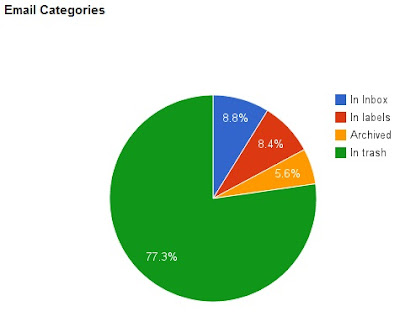I can’t sleep so I thought I’d kill two birds with one stone by dashing off a quick post.
I’m hoping the writing will tire me out enough for me to sleep, and also because I thought I’d share what’s on my mind – which is, coincidentally, the same thing that’s preventing me from sleeping.
—

Since my last prophetic success (LOL), I’d like to make a few more social media predictions (which aren’t so far removed from my own technological wish-list, actually):
- Tit for Tat:
A Facebook app that goes through your friend list, discovers what privacy settings people use on you and apply those same settings back on them.
Sounds like childish pettiness, I know, but look at it his way: we’ve reached an age in which information can be valued – or priced.
Hence, if Entity A has more information about Entity B than the converse, Entity A has greater leverage and Entity B stands to lose out.
Now, answer me truthfully: would you rather be Entity A or Entity B?
Precisely.
And knowing how some of our information on Facebook has the potential to make or break us, it’s only fair for information to be shared in as fair a manner as possible.
I’m as sure as hell not going to trawl through my Friend list to figure out privacy settings for each individual ‘Friend’, so an automated process to do this would be nice.
- Mute function and Timeline for Twitter web client:
These are actually quite low-level ideas, but I think they’d really make Twitter better to use in the long run.
- When I’m using my Mac at home, I have Tweetdeck which works great in terms of muting stupid people who tweet about inane things.
However, I don’t always use a Twitter app that has this function which means there’s a lot of noise I have no way of filtering out.
I’d unfollow these people, but I think it’s rude, so I’d rather just mute them – similar principle to that of Tit-for-Tat, I guess.
- Twitter needs a timeline in the same way Facebook has one, just so we can re-discover all our ‘old-but-gold’ posts and marvel at how intelligent (or alternatively, how juvenile) we used to be.
Until we started working and turned into our parents.
- Google Tunes:
This is different from Google Music in that it works like a normal Google search.
Instead of a textual input, however, you SING or hum a tune to your computer or Siri or what have you.
The Google Tune search then scours its ginormous database to find the name of the song you’ve just hummed, thereby saving you many sleepless nights of having an earworm run through your head endlessly.
This is especially helpful when you can’t Google the lyrics because you don’t, for the life of you, know what the lyrics are – but you know the tune to the chorus very, very, very well.
Tragicomedy aside, it’s possibly the highest-level idea of the lot, because it’s very close to the concept of what Web 3.0 is envisioned to be like.
Let me know when these things come about, or better yet – if similar products already exist.




